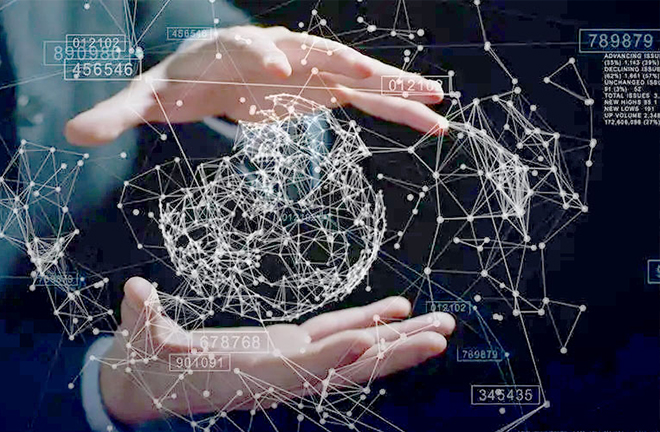Reflections on ‘data supremacy’ within digital space

FILE PHOTO: While bringing much convenience to people’s daily lives, the digital space also creates risks.
In recent years, the mobile internet, cloud computing, big data, artificial intelligence, blockchain, virtual simulation, and other digital technologies have emerged, creating a new social space for people, distinct from physical space. The emergence of digital space is regarded as the possible carrier to a better future society and the foundation of a new round of productivity reform. Although digital space conveys people’s vision for a better society, some potential risks are still worth reflection for precautious measures.
Invasion into privacy
In a sense, privacy comes from the birth of individuality. In modern society, boundaries between public and private can be called an important result of the development of modern social civilization. When the order and civilization of modern society are placed within the context of digital space, whether a public and private demarcation can be effectively maintained is worth prudent consideration.
It is true that digital space can add more convenient communication and interactions to our lives, more vivid visual and audio effects, and more abundant life experiences. But many still have some misgivings: whether this might unknowingly build what French philosopher Michel Foucault called the “panopticon” where people are coerced into a highly transparent and surveilled society, and there is no privacy at all. Such a concern has already been proven to be reality. For example, some e-commerce platforms conduct big data analysis on users’ browsing records and daily habits, and then develop customized product catalogues to push round-the-clock information and services to users. Some APPs, without authorization and permission, even use face detection, GPS positioning and tracking, and other functions to steal users’ private information.
In this time when digital space is not yet fully developed, digital technologies and complex algorithms infringe on privacy rampantly. So in the near future when our lives are entirely permeated by digital space, how can we avoid the erasure of boundaries between public and private in this space? Undoubtedly, some argue that tighter regulation is the solution to the digital space’s assault on privacy, and some believe that people will feel more secure in a more regulated space. However, how can we ensure that supervision power is entirely in the hands of the people? Will the sense of security created by digital space be an alternative “brain in a vat,” a paradox raised by American philosopher Hilary Putnam? These are questions worth asking.
Tech-giants monopoly
Currently, many tech-giants have entered digital space, to explore for their own interests. At present and for many years in the upcoming future, tech-giants will undoubtedly be the leaders of digital space. In this virtual field, whoever holds the data holds the right to speak. “Data supremacy” is therefore likely to be the factor that decides new expressions of power. If the data generated by an individual’s life, work, and study are all controlled by tech giants, then the power represented by tech-giants will possibly continue to dominate for a period of time.
In the face of powerful tech-giants, individual power is weak and may shrink even further, resulting in data monopolies and predictable disenfranchisement. Perhaps, with further perfection of digital space, the situation will be manageable, but at the current time the risk is significant.
Survival of humanity
As the conflict between the virtual world and reality has become the focus of debate, we face three fundamental issues about the survival of humanity.
The first is whether digital space expands real social relations. Marx pointed out that human nature is the sum of all social relations. Optimistically speaking, virtual social relationships can enrich and expand real social relationships. Pessimistically, the extension and expansion of digital space invades and assimilates real social relations.
The second is whether digital space enriches people’s life experience. After all, people live in the real world. If they indulge in illusory experiences from the virtual world for an extended period of time, their physical and mental health may be threatened, resulting in muscular and physical degeneration and other problems. In this scenario, humans are enslaved by machines—this will no longer be a movie plot, it will be a reality.
The third is whether digital space can construct perfect values and order. Many scholars have stressed that digital space should not become a “domain of freedom” where one can escape moral and legal constraint. It is particularly important to construct values and order within digital space in a way that accords with the real world. Definitely, this is merely the theoretical hypothesis. In practice, whether the values and order of digital space can effectively remain in line with those of the real world needs further observation.
Zhang Jianxiao is a lecturer from the School of Marxism at Soochow University.

 PRINT
PRINT CLOSE
CLOSE